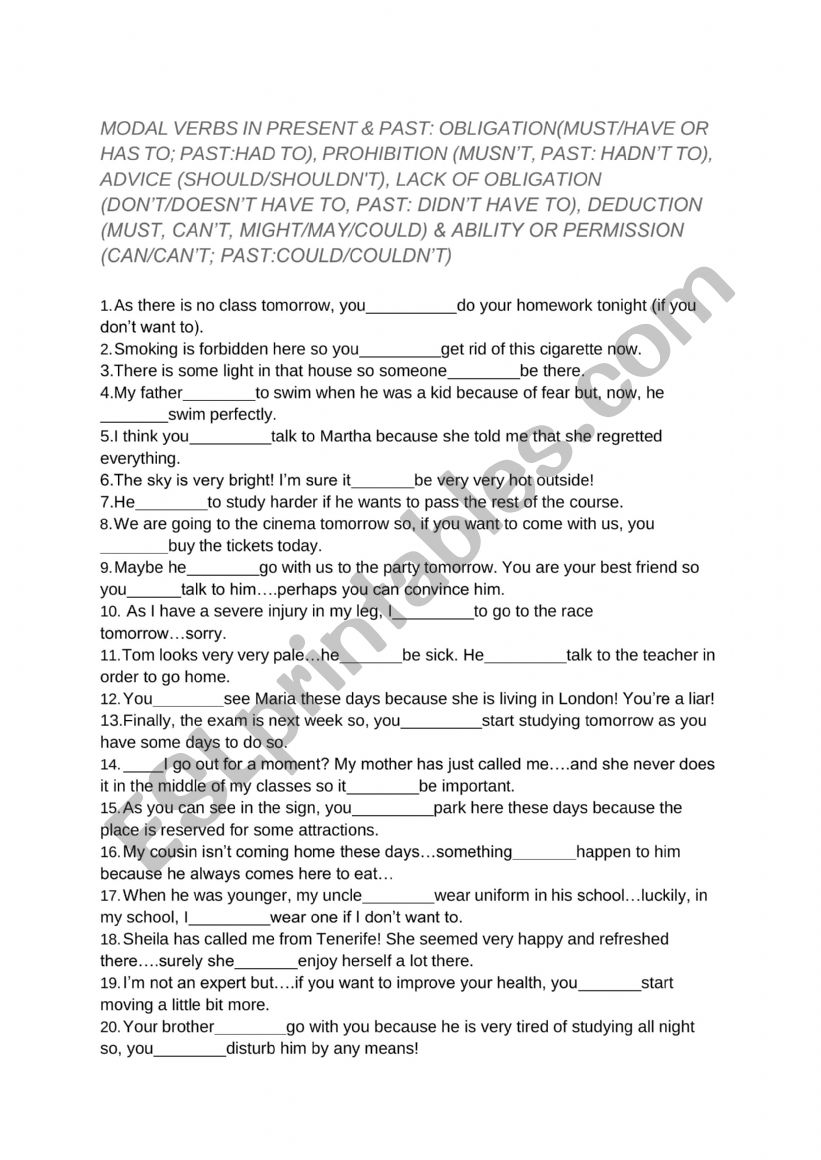


We use do and does to make questions with the present simple. Max’s father couldn’t work in the garage alone.The present tense is the base form of the verb:īut with the third person singular ( she/ he/ it), we add an –s: Was Max able to change the tyre yesterday? Max’s father could remember changing his first tyre. Example: Max’s father could do everything in the garage. The negative couldn’t can be used in all three cases. We use was/were able to when we talk about something specific in the past. We use could for general ability and with the verbs feel, hear, see, smell, taste, remember and understand. * We use could and was/were able for the past of can. Of course, we can also use the alternative forms (except for could) in other tenses. Max’s father also was supposed to/was expected to/was to work in the garage often. Max should work in the garage more often. To be supposed to/to be expected to/to be to Max’s father did not have to worry about his future either.

Max’s father was allowed to help at the age of 13. Max can help in the garage at the age of 12. His father was not able to/couldn’t change tyres. His father was not allowed to touch anything dangerous.


 0 kommentar(er)
0 kommentar(er)
